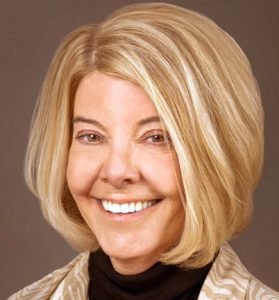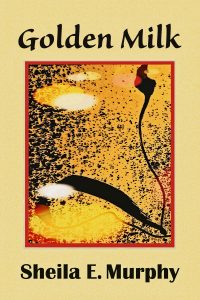 In my early life, I was a timid little person everybody liked, sociable, yet self-contained and somewhat lonely. Privacy was both source and protection. I lacked confidence initially. I sought evidence that my early efforts were worthy. Such confirmation would be fuel for harder, more intensive work. Sound was the connective tissue, the signaling of being joined with others in doing things that mattered. The voices of my friends, the importance of being included, the sound of laughter, my own ability to make others laugh.
In my early life, I was a timid little person everybody liked, sociable, yet self-contained and somewhat lonely. Privacy was both source and protection. I lacked confidence initially. I sought evidence that my early efforts were worthy. Such confirmation would be fuel for harder, more intensive work. Sound was the connective tissue, the signaling of being joined with others in doing things that mattered. The voices of my friends, the importance of being included, the sound of laughter, my own ability to make others laugh.
I learned early that my mind works differently from others, and gradually found ways to navigate their signals while constructing and conveying what was real for me. Recalling what preceded and prompted my poetry stimulates the act of weaving. Poetry is composed of sound and silence, is made in privacy, and builds confidence.
There is no language for first experience. Only feeling. The eyes of my mother, her confident and loving voice, were music. Mother played the piano, sang, and was classically trained on the violin.
The sense of hearing was my first reality. While carrying me, my mother was leading school music programs and continuously playing or performing music. I likely grew accustomed during gestation to sound and may have sensed her positive feeling of creating music. Born premature, I spent my first six weeks in an incubator, keeping my eyes closed, and listening.
At age 10, it was time to select an instrument. Mother and I reviewed a book and decided on the flute for me. Unprompted, I practiced six hours each day, adding to my classical repertoire by routinely playing by ear the music that I liked on the radio by jazz artists and others. My flute teacher, George Opperman, taught music theory so well that when I took theory classes in college, the substance was mere review. Mr. Opperman’s vibrato lifted my aspirations for performance, and I relished the muscular purity of his playing, characteristic of the Romantic period. In his one-man factory downtown, he crafted the range of instruments in the flute family, notably bass flutes and alto flutes. To me, there was no more powerful and surprising sound than that of the bass flute, elevating the resonant heft of the instrument far beyond the usual range of the C flute. It was the closest and most confirming version of a foundation for silence, sensing the breath’s leading to the meditative tone of “om.”
My high school experience was warming and replete with humor and music and literature at the center. In addition to fluting my head off, I sang in small ensemble and madrigal groups under the guidance of Terrence and Patricia Shook, colorful and remarkable musicians immersed in what they were doing,
My classmates and I did skits and filmed them. Good at imitating voices, I performed the role of certain teachers and was applauded for my stand-up work. This built my confidence while adding to the joy of shared experience with people I genuinely liked.
Learning the French language under the tutelage of Sister Miriam Edward, a veritable human beehive, was an electric experience. An American speaker of French, she demonstrated precisely the physical things we needed to do to produce the proper sounds for “r,” having us press our tongues against the bottom teeth and then led us in singing wordlessly the tune to “A Bicycle Built for Two.” Hilarious. She drew from us a passion for the language. Sound again, the primary inspiration and comfort in my life. At a parent-teacher conference, she told my parents that I had the best pronunciation of French in the class. More confidence. More sound. More confirmation.
The way our teachers spoke about poets appealed to me. It seemed that poets had a license to think, to feel, to be, in ways that transcended what others were afforded. That platform of acceptance appealed to me. Attracted as I was to poetry, these were early days. I was not yet sure how things would work out. I was identified as a flute player. However, I was beginning to suspect that I might be able to create poetry, as I felt the flow of lines that spawned lines of my own.
The urge to write poetry came along full force in my undergraduate years as I read the call for submissions from the literary journal. The quiet of privacy in the evening hours when pen met the page resulted in a charged sense of each poem’s coming into being. The act of writing bridged silence and music. It fostered a peaceful confidence. Writing allowed me to perceive what was around me. I needed to allow things to be what they are and to write without the encumbrance of fearing how my message might land. I decided to use multiple pseudonyms for poems I felt needed to be written. I submitted a few under my own name and several more under different names. Most of my submitted poems were published, to the extent that much of the publication was written by me. I held this secret close.
At the University of Michigan during my master’s degree program, I discovered yet another dimension of sound. Professor Hamilton, who taught the course in Chaucer, required that we read aloud in Middle English. I spent countless hours in the language lab rehearsing because of my zeal to perfect the sound of The Canterbury Tales in Middle English. I loved hearing and speaking the work aloud and was thrilled during one of our extra group sessions to hear Mr. Hamilton favorably acknowledge my vocalizing of that rich and flavorful text. This further heightened my devotion to the intonation of Chaucer in that lovely language.
Poetry is ultimately weaving quiet into music. The fibers of sound, silence, privacy, and confidence, constitute the fabled spinning of straw to gold. So much material, infinite possibilities for making, and the joy of being able to partake in that richness. Ultimately, poetry has become an endless source of abundance, both in what leads to writing and the writing itself. I weave with increasing naturalness now, take risks, and hear both singing and silence as facets of a miraculous music. The pursuit continues, replete with listening, reading, discipline, and relationships that bring surprise. I am grateful for it all, reminding myself each day that I am just getting warmed up.
Sheila E. Murphy. In 2020, Luna Bisonte Prods released Golden Milk. Murphy’s book titled Reporting Live from You Know Where (2018) won the Hay(na)Ku Poetry Book Prize Competition from Meritage Press (U.S.A.) and xPress(ed) (Finland). Broken Sleep Books brought out the book As If To Tempt the Diatonic Marvel from the Ivory (2018). Murphy is the recipient of the Gertrude Stein Award for her book Letters to Unfinished J. (Green Integer Press, 2003). As an active collaborator, she has worked with Douglas Barbour on an extended poem called Continuations. Initially educated in instrumental and vocal music, Murphy is associated with music in poetry. She earns her living as an organizational consultant and researcher and holds the PhD degree. She has lived in Phoenix, Arizona throughout her adult life.

